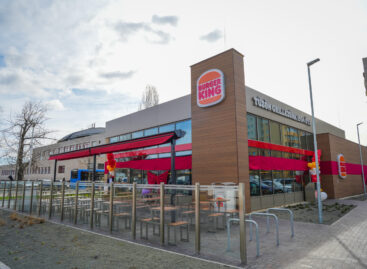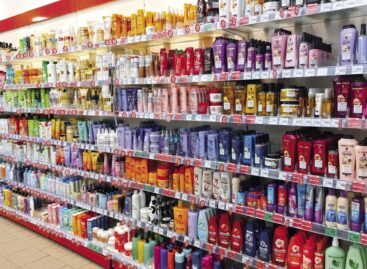Transforming waste into opportunity
Henkel is teaming up with the Plastic Bank, a social enterprise which aims to stop ocean plastic and provide opportunities for people in poverty. New plastic collection centers are now being built in Haiti, where communities will have the chance to earn money or services by removing plastic waste from the local environment – before it enters waterways or oceans. Henkel is the first major global fast-moving consumer goods company to partner with the Plastic Bank, and is researching ways of incorporating the plastic collected into its product packaging in the future.
The Plastic Bank was founded by David Katz in March 2013, with the aim of gathering a billion people together to monetize waste while improving the lives of people in countries that lack waste management infrastructure. By partnering with the Plastic Bank, Henkel is taking another step forward in its long tradition of leadership in sustainability. The 141-year-old company aims to triple the value it creates in relation to its environmental footprint by 2030, and is frequently recognized as a sustainability leader within its sector by independent sustainability ratings and rankings.
“We are convinced that our focus on sustainability is more important than ever before,” says Kathrin Menges, Executive Vice President Human Resources at Henkel and Chair of Henkel’s Sustainability Council. “We’re excited to partner with the Plastic Bank to stop plastic waste from entering the ocean in Haiti and improve the lives of people living in poverty. By activating leading brands in this cooperation, we aim to further raise consumer awareness about plastic waste and demonstrate the strength of our commitment to environmental sustainability and social progress.”
A ladder of opportunity
The partnership with the Plastic Bank is driven by Henkel’s flagship beauty brand Schwarzkopf and leading brands from the company’s Laundry & Home Care business. It will initially focus on Haiti, where the lack of waste management infrastructure means there is significant potential for positive impact. Local communities on the island will receive money, goods or services in exchange for collecting plastic waste. The plastic that is collected is sorted and processed, and then integrated into recycling value chains as Social Plastic®: Material that has been verified by the Plastic Bank to indicate that the collectors received an above-market price for the plastic waste. “We’re delighted to announce this partnership with Henkel and its leading consumer brands,” says David Katz, Founder and CEO of the Plastic Bank. “Collaborating with a global leader in sustainability will empower us to reach even more people with our solution – and have an even bigger impact on the environment. Together, we can stop ocean plastic by turning waste into currency, and create a ladder of opportunity for people living in poverty.”
Sustainability through leading brands
This new partnership builds on Henkel’s existing activities related to sustainable packaging and recycling. In 2016, Henkel used recycled plastic in the packaging for around 1.3 billion detergent, household cleaning and beauty care products globally. This success indicates the strength of Henkel’s commitment to sustainable packaging, which it follows through three focus principles: Less packaging and waste, better packaging, and enabling a circular economy. “The Plastic Bank offers a unique solution to the problem of ocean plastic because it tackles waste at the source and is scalable worldwide,” says Thomas Müller-Kirschbaum, Head of Global Research and Development in Henkel’s Laundry & Home Care business unit. “This partnership with our brands expands our existing initiatives by adding a strong focus on supporting social progress.”
Henkel’s support for the Plastic Bank represents another step forward with its ongoing commitment to environmental sustainability and social progress. For example, the new partnership complements the activities conducted through the flagship beauty brand Schwarzkopf’s “Million Chances” initiative, which helps girls and women around the world to create a positive future for themselves. In the past year, Schwarzkopf has provided professional training and educational opportunities for thousands of girls and women around the world, from Croatia and Slovenia through to China, India, Colombia, South Africa, and beyond. “Schwarzkopf and the Plastic Bank share two key objectives: Caring for the environment and improving people’s lives,” says Marie-Ève Schröder, Corporate Senior Vice President International Marketing in Henkel’s Beauty Care business unit. “Together, we can create life-enhancing opportunities for people living in poverty, empowering individuals and communities by providing access to a reliable income.”
Related news
40 secure jobs, sustainable solutions – new BURGER KING® in Csepel
🎧 Hallgasd a cikket: Lejátszás Szünet Folytatás Leállítás Nyelv: Auto…
Read more >From routine to ritual
🎧 Hallgasd a cikket: Lejátszás Szünet Folytatás Leállítás Nyelv: Auto…
Read more >Carrefour and Coca-Cola are focusing on refillable glass bottles
🎧 Hallgasd a cikket: Lejátszás Szünet Folytatás Leállítás Nyelv: Auto…
Read more >Related news
HELL CITY has arrived, led by Michele Morrone
🎧 Hallgasd a cikket: Lejátszás Szünet Folytatás Leállítás Nyelv: Auto…
Read more >Two million people have already voted, so 57 million forints will be given to locals in 125 settlements, courtesy of Tesco
🎧 Hallgasd a cikket: Lejátszás Szünet Folytatás Leállítás Nyelv: Auto…
Read more >Will AI tell us what we can buy in stores and for how much?
🎧 Hallgasd a cikket: Lejátszás Szünet Folytatás Leállítás Nyelv: Auto…
Read more >







